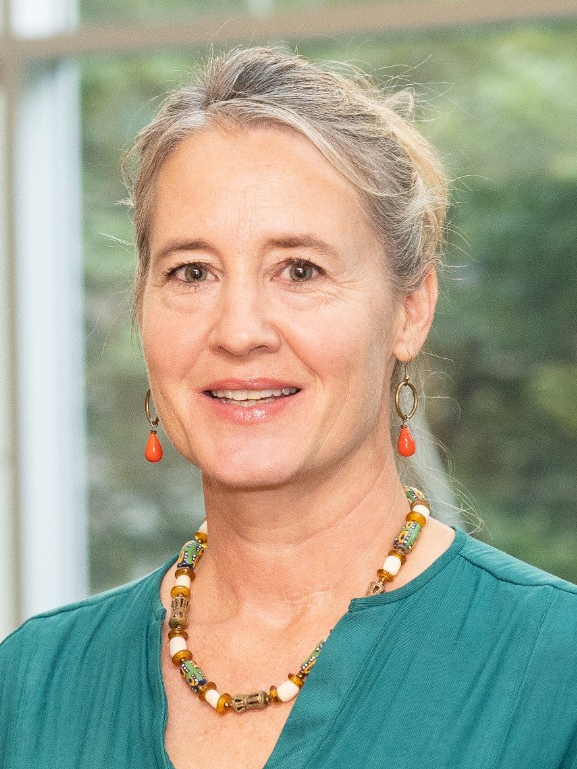
Elizabeth Cooper
Education
D.Phil. University of Oxford, Social Anthropology
M.Phil. University of Oxford, Social Anthropology
M.A. University of British Columbia, Planning (International Development)
B.A. University of British Columbia, International Relations
Areas of Specialization
- Africa
- Anthropology
- Children and Youth
- Education
- Hiking and Outdoor Tourism
- International Development
- Social Change and Social Justice
Research
Elizabeth Cooper is a social anthropologist interested in the experiences of children and youth, especially in relation to social justice, protest, violence, and belonging. She has been conducting research in East Africa, and primarily Kenya, since 2003.
Elizabeth had conducted extensive research about young people’s experiences of education and protest. Her award-winning 2022 book entitled 'Burning Ambition: Education, Arson, and Learning Justice in Kenya' explores how young people learn to understand and influence the workings of power and justice in their society. Through an in-depth study of Kenyan secondary students’ use of arson in their schools, Burning Ambition accounts for how, and what, a youthful cohort has learned about the entwinement of violence and authority in Kenya.
Elizabeth’s current research focuses on hiking and the social history of mountaineering in Kenya. This research addresses how current initiatives challenge longtime exclusion of black Kenyans from experiencing their own country through tourism and recreation, and the significance of outdoor access to urban lifestyles.
Elizabeth has also conducted longitudinal ethnographic research, begun in 2007, about how HIV/AIDS and chronic poverty have affected the lives of young people and communities in western Kenya. That research attends to changing ideas and practices of sociality, and specifically people’s kinship and caring relations, intergenerational relations, and relations with the state and non-governmental actors.
Elizabeth has previously conducted research concerning the lives of children and young people in refugee camps in Kenya and Uganda for the United Nations High Commissioner for Refugees and CARE International, as well as research about women’s poverty and inheritance rights in Ghana, Mozambique, Rwanda, Uganda, and Kenya for the Overseas Development Institute. In her early career, Elizabeth worked as a political assistant to Canada’s Minister of the Environment and as the public affairs officer for the Canadian Embassy and Canadian International Development Agency in Hanoi, Vietnam.
Publications
Cooper, E. 2022. Burning Ambition: Education, Arson, and Learning Justice in Kenya. University of Wisconsin Press.
Cooper, E. 2018. ‘Beyond the everyday: Sustaining kinship in western Kenya’, Journal of the Royal Anthropological Institute, 24 (1): 30-46.
Cooper, E. 2017. ‘The importance of being serious: Subjectivity and adulthood in Kenya’, Ethnos, DOI: 10.1080/00141844.2017.1317644
Cooper, E. and D. Pratten (eds). 2015. Ethnographies of Uncertainty in Africa. London: Palgrave Macmillan.
Cooper, E. 2015. ‘Charity and chance: The manufacture of uncertainty through child sponsorship in Kenya’, Chapter in: Cooper, E. and D. Pratten (eds). Ethnographies of Uncertainty in Africa. London: Palgrave Macmillan, pp. 36-58.
Cooper, E. 2014. ‘Students, arson, and protest politics in Kenya: School fires as political action’, African Affairs, 113 (453): 583-600.
Cooper, E. 2012. ‘Sitting and standing: How families are fixing trust in uncertain times’, Africa, 82 (3): 437-456.
Cooper, E. 2012. ‘Following the law, but losing the spirit of child protection in Kenya’, Development in Practice, 22 (4): 486-497.
Cooper, E. and K. Bird. 2012. ‘Introduction. Inheritance: A gendered and intergenerational dimension of poverty’, Development Policy Review, 30 (5): 527-541.
Cooper, E. 2012. ‘Women and inheritance in sub-Saharan Africa: What can change?’, Development Policy Review, 30 (5): 641-657.
Cooper, E. 2008. ‘Children’s homes to children’s villages: the increasing separation of children from local society in Nyanza Province, Kenya’, Anthropology News, 49 (3): 26-7.
Boyden, J. and E. Cooper. 2008. ‘Questioning the power of resilience: Are children up to the task of disrupting the transmission of poverty?’ Chapter in: Addison, T., D. Hulme and R. Kanbur. (Eds). Poverty Dynamics: Interdisciplinary Perspectives. Oxford: Oxford University Press: 289-308.
Cooper, E. 2008. ‘Learning from the research questions of out-of-school refugee youths’, Chapter in: Leach, F. and M. Dunne (Eds). Education, Conflict and Reconciliation: International Perspectives. Oxford: Peter Lang Publishing Group: 333-348.
Cooper, E. 2007. ‘Praxis in a refugee camp? A case study of Participatory Action Research with refugee youths’, Children, Youth & Environments, 17 (3): 104-121.
Cooper, E. 2005. ‘What do we know about out-of-school youths? How Participatory Action Research can work for young refugees in camps’, Compare: A Journal of Comparative Education, 35 (4): 463-477.
Teaching
- IS 220 Wealth and Poverty of Nations
- IS 329/809 Refugees and Forced Migration
- IS 427 Globalization, Poverty and Inequality
- IS 429 Development Practice and Ethics
- IS 429 Lived Realities of Global Political Economy
- IS 450W Global Problems in Interdisciplinary Perspective
- IS 451 Seminar in Core Texts in International Studies
- IS 800 Problems of International Policy and Practice
Courses
Fall 2024
Future courses may be subject to change.

